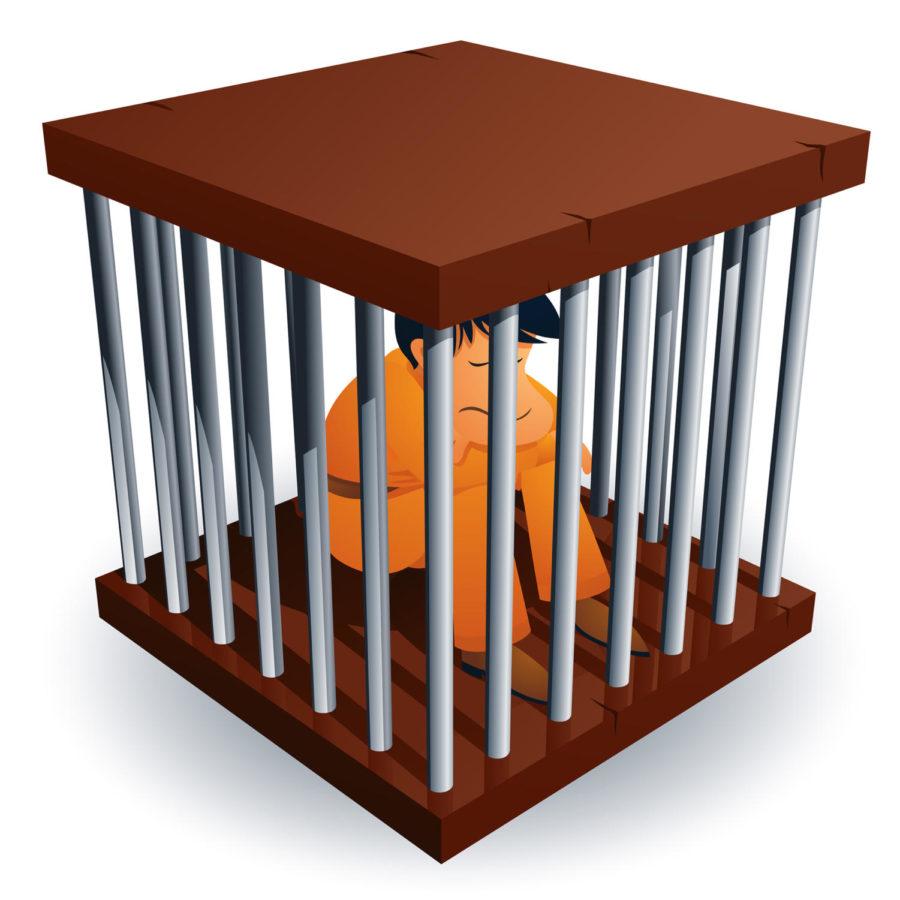King: Solitary confinement represents torture
Solitary Confinement
February 9, 2016
Irish citizen Ali Charaf Damache was arrested in Spain in 2010 for contacting a Muslim activist and threatening his life. At the time, Damache was wanted in the United States for allegedly providing material support to terrorists. Naturally, the United States wanted him to be extradited back to the United States for trial. That didn’t happen though, as the Irish High Court refused for fear that he would be “subjected to inhuman and degrading treatment if extradited to the USA.” The court was referring to solitary confinement.
Former prison warden Robert Hood described solitary confinement as “a clean version of hell.” One prisoner, who spent more 25 years in solitary confinement, called it “far worse than any death sentence possibly could have been,” while another was quoted saying, “My mind’s gone dead. God help me.”
Imagine a concrete, windowless jail cell the size of a parking spot. The only light comes in from a few slits in the cell door, and the concrete around you is so thick that you likely can’t tell any other person is out there. It’s rare that you get your hands on books or anything you can use to keep your mind busy.
Try to imagine spending 23 hours a day in this cell for years, or even decades, as many U.S. prisoners do. If you really did your best to imagine yourself in this situation, then you should realize what an absolutely horrific experience solitary confinement must be.
Juan E. Méndez, the United Nations expert on torture, has called for the banning of solitary confinement. He considers it to be torture, and I’m inclined to agree.
Torture, as defined by the United Nations, is “any act by which severe pain or suffering, whether physical or mental, is intentionally inflicted on a person.” So what proof is there that solitary confinement should be considered to cause severe mental suffering?
Simply imagining how psychologically grueling it must be to spend 23 hours a day in a concrete box by yourself may not be considered proof that solitary confinement is torture. The same goes for the often shocking testimonies from former solitary prisoners, as those testimonies are purely subjective.
The objective proof that criminals locked away in solitary confinement are undergoing severe mental suffering, and therefore torture as defined by the United Nations, lies within statistics of suicide occurring in U.S. prisons. A study by Psychiatric Services revealed that 46 percent of all successful suicide attempts in prisons happen in solitary confinement.
Consider the fact that there are an estimated 2.4 million people behind bars in the United States and only about 80,000 in solitary confinement. This means that nearly half of all successful suicides occurring in our prisons are being committed by the 3 percent of prisoners in solitary confinement. I am disgusted that prisons in the United States engage in a punishment so brutal that it can easily destroy a person’s will to live.
Reconsider that previous statistic. An estimated 80,000 people in the United States are enduring solitary confinement as we speak. That number should be high enough to disturb anyone, but now think about the fact that many of those people are under 18 or are non-violent inmates and many are mentally ill. Estimates by the Bureau of Justice Statistics suggest that 62 percent of people in U.S. jails and prisons suffer from mental health problems.
Mental illness is defined as “Any of various disorders in which a person’s thoughts, emotions, or behavior are so abnormal as to cause suffering to himself.” There are likely thousands of prisoners, some underage and non-violent, who have been condemned to a silent, lonely cell and stuck with nothing but their own abnormal, sufferance-producing thoughts. Some might argue that this kind of psychological torture is worse than many forms of physical torture.
Prisons, of course, need ways to prevent violent convicts from hurting their fellow inmates, but I believe there are better options than solitary confinement. Violent convicts could be kept in single cells, by themselves, with windows to let in natural light and barred doors so they can have some form of human contact.
They could also easily be provided with books, radios and televisions in order to keep their minds busy. This single cell method would be just as effective at preventing violence as solitary confinement, so why not do that and preserve the sanity of people in U.S. confinement?
Prisons use solitary confinement to punish inmates, not to keep them safe. It’s not crazy to think that punishing an inmate for doing something wrong may prevent him/her from doing it again in the future. However, it’s crazy for us to torture people in the United States in 2016. This country should be able to come up with better methods for rehabilitating its criminals rather than reverting back to the school of thought that some people deserve that kind of treatment.
In 2006, President Bush said, “The United States does not torture.” In 2009, President Obama said, “Under my administration the United States does not torture.” Evidently, both of our last two presidents were either lying or were ill-informed on what classifies as torture, as solitary confinement should absolutely be considered a form of torture.

















